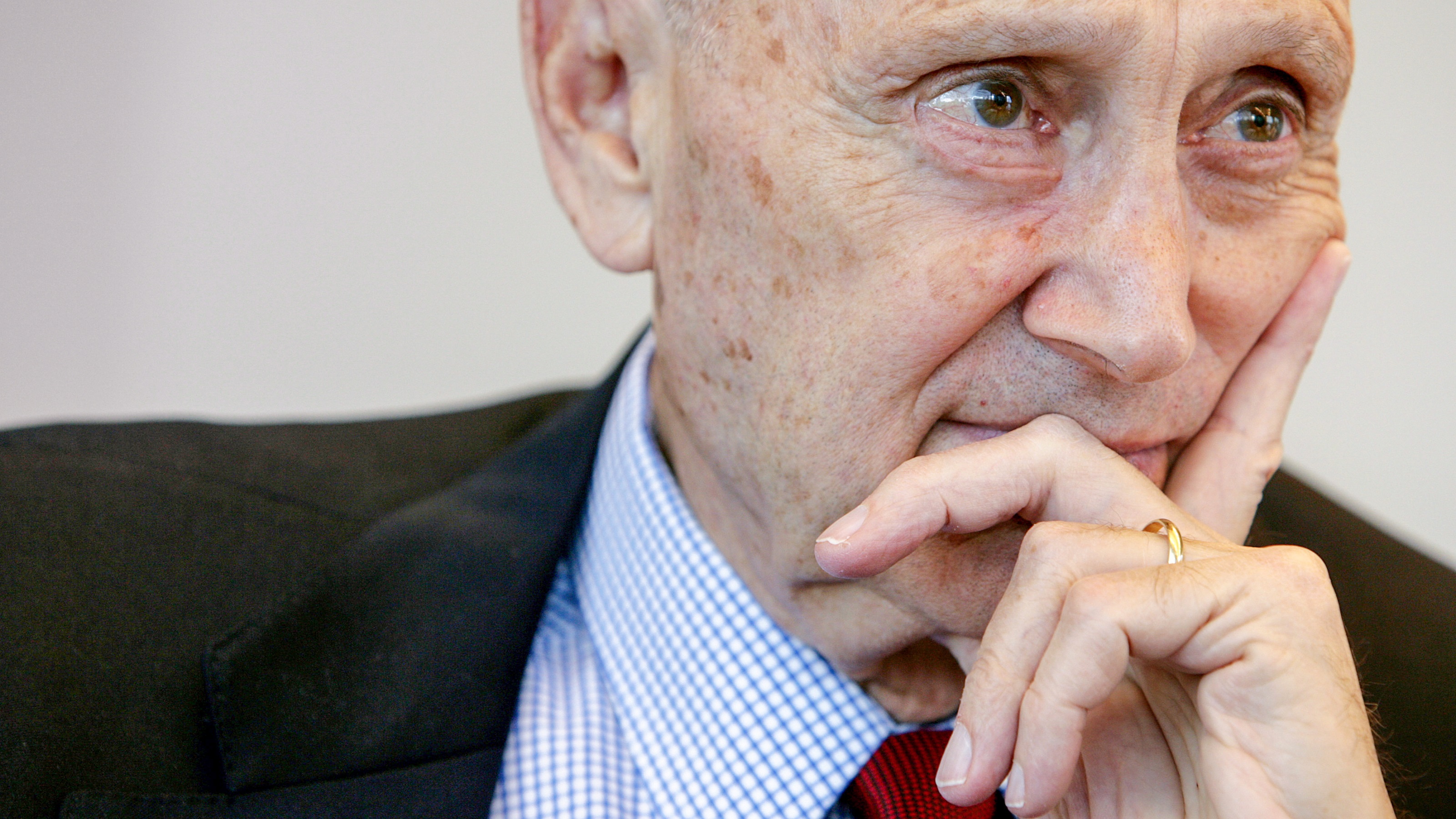Profit and prosper with the best of Kiplinger's advice on investing, taxes, retirement, personal finance and much more. Delivered daily. Enter your email in the box and click Sign Me Up.
You are now subscribed
Your newsletter sign-up was successful
Want to add more newsletters?

Delivered daily
Kiplinger Today
Profit and prosper with the best of Kiplinger's advice on investing, taxes, retirement, personal finance and much more delivered daily. Smart money moves start here.

Sent five days a week
Kiplinger A Step Ahead
Get practical help to make better financial decisions in your everyday life, from spending to savings on top deals.

Delivered daily
Kiplinger Closing Bell
Get today's biggest financial and investing headlines delivered to your inbox every day the U.S. stock market is open.

Sent twice a week
Kiplinger Adviser Intel
Financial pros across the country share best practices and fresh tactics to preserve and grow your wealth.

Delivered weekly
Kiplinger Tax Tips
Trim your federal and state tax bills with practical tax-planning and tax-cutting strategies.

Sent twice a week
Kiplinger Retirement Tips
Your twice-a-week guide to planning and enjoying a financially secure and richly rewarding retirement

Sent bimonthly.
Kiplinger Adviser Angle
Insights for advisers, wealth managers and other financial professionals.

Sent twice a week
Kiplinger Investing Weekly
Your twice-a-week roundup of promising stocks, funds, companies and industries you should consider, ones you should avoid, and why.

Sent weekly for six weeks
Kiplinger Invest for Retirement
Your step-by-step six-part series on how to invest for retirement, from devising a successful strategy to exactly which investments to choose.
As we survey the wreckage of our portfolios in the new year, it's worth considering this: You can beat the great majority of investment professionals by employing simple strategies that use low-cost index funds. Index funds track a broad swath of the stock market, such as big-company stocks, small-company stocks, emerging-markets stocks, and so on.
Some of the biggest brains in the world of finance -- from Nobel Prize-winning professors, such as William F. Sharpe, to, arguably, the greatest money manager of our time, Warren Buffett -- advocate a "passive" style of investing epitomized by index funds.
The evidence seems to back up these intellectual heavyweights. Over the past 15 years through December 31, Standard & Poor's 500-stock index performed better than 71% of mutual fund managers who specialize in the stocks of large U.S. companies.
From just $107.88 $24.99 for Kiplinger Personal Finance
Become a smarter, better informed investor. Subscribe from just $107.88 $24.99, plus get up to 4 Special Issues

Sign up for Kiplinger’s Free Newsletters
Profit and prosper with the best of expert advice on investing, taxes, retirement, personal finance and more - straight to your e-mail.
Profit and prosper with the best of expert advice - straight to your e-mail.
How well have you done by picking managers who actively buy and sell securities? It's true that some fund managers can beat their relevant index. But as Princeton professor Burton Malkiel asserts in his famous book, A Random Walk Down Wall Street, there's no good way to "find such skill before it has been demonstrated over time."
Building a simple portfolio based on index funds is, well, simple. You can find my take on index funds in Three Winning Portfolios. But we thought it would be interesting to ask some of the champions of easy, low-cost investing to suggest their own portfolios.
So we kick off the Simple Portfolios corner of Kiplinger.com with recommendations from three experts. Our request was straightforward: balanced, low-cost portfolios, with no more than eight investments, for people investing for the long term. We're not fanatical about our guidelines; we allowed our experts to use actively managed funds as well as index funds. They submitted their portfolios in December 2008, and we decided to begin tracking performance as of January 1, 2009. We will rebalance the portfolios twice a year, on the last day of June and the last day of December.
The first is from Larry Swedroe, director of research for St. Louis-based Buckingham Asset Management, and author of several useful books, including The Successful Investor Today and The Only Guide to a Winning Investment Strategy You'll Ever Need.
Swedroe doesn't mince words. Believing in active management is "absurd," he says, calling it "the triumph of hope over wisdom and experience." The wise investor knows that some managers will beat the indexes occasionally, but when they do, Swedroe says, it's "purely out of luck."
Swedroe's simple portfolio reflects these sentiments, as well as the tendency of value stocks and small-company stocks to do better than other stocks over time.
Swedroe's portfolio:
15% Vanguard Value Index (symbol VIVAX) (Tracks an index of undervalued stocks from the largest 750 U.S. companies)
15% Vanguard Small Cap Value Index (VISVX) (Tracks an index of stocks of small, undervalued U.S. companies)
13% iShares MSCI EAFE Value Index (EFV) (Tracks an index of stocks of large, undervalued foreign companies)
13% iShares MSCI EAFE Small Cap Index (SCZ) (Tracks an index of stocks of small overseas companies)
4% Vanguard Emerging Markets Stock Index (VEIEX) (Tracks an index of companies from developing nations)
40% Vanguard Inflation-Protected Securities (VIPSX) (Invests at least 80% of assets in inflation-indexed bonds issued by the U.S. government)
Next is the portfolio of Princeton professor Burton Malkiel, whose latest book (with three co-authors) is From Wall Street to the Great Wall: How Investors Can Profit from China's Booming Economy.
In Malkiel's view, managers in developed markets will be hard-pressed to beat their indexes over time. So he has the bulk of his portfolio's assets in index funds. And Malkiel keeps the majority of the assets in foreign stocks because, he says, foreign markets offer better growth opportunities than the U.S. does.
While most of his portfolio consists of passively managed and exchange-traded funds, which also follow indexes, Malkiel has stakes in actively managed funds as well. (In fact, this portfolio represents his actual investments.)
He owns Vanguard Capital Opportunities because of his "enormous" respect for the managers at Primecap Management Company, who run the fund for Vanguard. Malkiel, a former director of the Vanguard Group, says he feels he can make a small bet on Primecap's expertise because the core of his portfolio is in index funds.
More interesting are his picks of Templeton Dragon and Matthew's India, both actively managed. "I believe that of all the places in the world, China and India are the two that will have the highest growth rates," says Malkiel. Templeton Dragon, a closed-end fund that focuses on Chinese stocks, is managed by longtime emerging-markets hand Mark Mobius. While Malkiel is not sure that Mobius can beat the relevant index, he thinks Mobius is an excellent manager. "If I can buy Mark Mobius at 85 cents on the dollar, I'm happy to do it." At its January 16 closing price of $16.52, Templeton Dragon sold for 6.9% less than the value of its underlying assets.
Malkiel says that there aren't many good ways to play India, and if there were a good closed-end India fund trading at a discount to its net asset value, he'd buy it. For now, he'll take the Matthew's fund.
Malkiel's portfolio:
20% Vanguard Total Stock Market ETF (VTI) (Tracks a broad index of U.S. companies)
20% Vanguard FTSE All-World ex-US ETF (VEU) (Tracks a broad index of stocks from developed and emerging foreign markets.)
20% Vanguard Total Bond Market ETF (BND) (Tracks a broad index of high-quality U.S. bonds)
10% Vanguard Capital Opportunity (VHCOX) (An actively managed fund that likes big growth companies down on their luck)
10% Vanguard Emerging Markets ETF (VWO) (Tracks an index of stocks developing nations)
10% Templeton Dragon (TDF) (Invests in stocks from China and nearby nations)
10% Matthew's India (MINDX)(Invests in stocks from India)
Given the interest in fixed-income investing (and the fear and loathing surrounding the stock market these days), we also sought a stockless portfolio. William Larkin, fixed-income portfolio manager at Cabot Money Management, in Salem, Mass., says his portfolio was originally designed for conservative clients who wanted conservative investments.
These days, though, he finds that many clients who hadn't considered themselves conservative in the past are now interested in fixed-income investing only. This portfolio represents all parts of the fixed-income market at the lowest possible cost, he says, and recently yielded 6.3%. It also has a healthy slug of inflation protection, which is particularly reassuring given all the money that's being printed for various government stimulus and rescue plans around the world.
Larkin's portfolio:
25% iShares Barclays Aggregate Bond ETF (AGG)(Tracks a broad index of high-quality U.S. bonds)
25% iShares iboxx $ Investment Grade Corporate (LQD)(Tracks an index of the most liquid, long-term corporate bonds)
10% Fidelity Floating Rate High Income (FFRHX)(Invests in floating rate bank loans that automatically adjusts to rising short-term interest rates. It offers additional inflation hedge)
10% iShares MBS Fixed Income (MBB)(Tracks a broad index mortgage-backed securities)
7.5% SPDR DB International Govt Inflation-Protected Bond (WIP)(Invests in an index of non-U.S., inflation-linked bonds)
7.5% PowerShares Emerging Markets Sovereign Debt (PCY)(Tracks an index of emerging markets government debt)
7.5% iShares Barclays TIPS Bond (TIP)(Tracks an index of inflation-protected, U.S. Treasury securities)
7.5% iShares Iboxx $ High Yield Corporate Bond (HYG)(Tracks an index of high yield bonds)
Profit and prosper with the best of Kiplinger's advice on investing, taxes, retirement, personal finance and much more. Delivered daily. Enter your email in the box and click Sign Me Up.

-
 Nasdaq Leads a Rocky Risk-On Rally: Stock Market Today
Nasdaq Leads a Rocky Risk-On Rally: Stock Market TodayAnother worrying bout of late-session weakness couldn't take down the main equity indexes on Wednesday.
-
 Quiz: Do You Know How to Avoid the "Medigap Trap?"
Quiz: Do You Know How to Avoid the "Medigap Trap?"Quiz Test your basic knowledge of the "Medigap Trap" in our quick quiz.
-
 5 Top Tax-Efficient Mutual Funds for Smarter Investing
5 Top Tax-Efficient Mutual Funds for Smarter InvestingMutual funds are many things, but "tax-friendly" usually isn't one of them. These are the exceptions.
-
 'A Random Walk Down Wall Street' at 50
'A Random Walk Down Wall Street' at 50Interview 'A Random Walk Down Wall Street': 50 years on Burton Malkiel, author of the investing classic, remains a champion of index investing.
-
 The 5 Best Actively Managed Fidelity Funds to Buy and Hold
The 5 Best Actively Managed Fidelity Funds to Buy and Holdmutual funds Sometimes it's best to leave the driving to the pros – and these actively managed Fidelity funds do just that, at low costs to boot.
-
 The 12 Best Bear Market ETFs to Buy Now
The 12 Best Bear Market ETFs to Buy NowETFs Investors who are fearful about the more uncertainty in the new year can find plenty of protection among these bear market ETFs.
-
 How Direct Indexing Could Work for You
How Direct Indexing Could Work for YouTax efficiency is the primary goal for many new direct indexing offerings, but they come with a lot of caveats.
-
 Don't Give Up on the Eurozone
Don't Give Up on the Eurozonemutual funds As Europe’s economy (and stock markets) wobble, Janus Henderson European Focus Fund (HFETX) keeps its footing with a focus on large Europe-based multinationals.
-
 Vanguard Global ESG Select Stock Profits from ESG Leaders
Vanguard Global ESG Select Stock Profits from ESG Leadersmutual funds Vanguard Global ESG Select Stock (VEIGX) favors firms with high standards for their businesses.
-
 Kip ETF 20: What's In, What's Out and Why
Kip ETF 20: What's In, What's Out and WhyKip ETF 20 The broad market has taken a major hit so far in 2022, sparking some tactical changes to Kiplinger's lineup of the best low-cost ETFs.
-
 ETFs Are Now Mainstream. Here's Why They're So Appealing.
ETFs Are Now Mainstream. Here's Why They're So Appealing.Investing for Income ETFs offer investors broad diversification to their portfolios and at low costs to boot.
